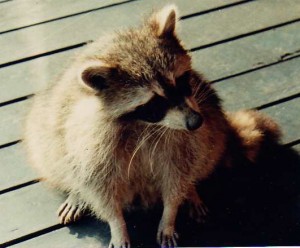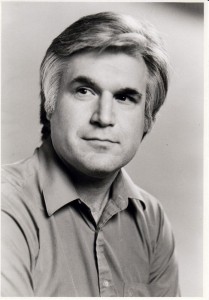Would you like to read this article on your Kindle?
Here is the Kindle Reader Edition of Hidden Harmony.

HIDDEN HARMONY
(See page one here & page two here.)
Finally we reached Rochester, where I often began to feel a stronger sense of place. We called it our town. We attended harvest fairs on the green, sat in the café with friends, participated in amateur theatre, bought provisions, did the banking, collected the mail, and gossiped at the unisex hair salon.
Was the inn still there? Yes. Was the video store still operating? No. The general store certainly looked the same. Maybe they had painted the high school.
Five kilometres out of town, we took a sharp turn up a steep hill. Then came a meadow. And then up, up, up.
Here’s the house sitting at the edge of the world. In the distance are the mountains, looking dense and eternal in the fading afternoon sun. It’s been five years since we lived here. A chill runs down my spine. There is new landscaping, and far fewer trees surround the house. Have the current occupants cleared the land to rid themselves of raccoons?
A few presses on the gas pedal, and we arrive at our friends’ home. Not much has changed, except that it seems the trees around the house are no longer being topped to afford a clearer view of the mountains.

I make a beeline for the open deck. From the summit, the peaks and valleys are so intensely pleasing, so fractal. It is already late in the day, and the moon is becoming more visible. We sit and watch the mystery of night slowly unfolding. We toast Molly the raccoon, hoping she is out there somewhere, even though we know raccoons often do not live beyond six or seven years.
“Why don’t you try calling her,” I suggest half—seriously, remembering how Barbara’s lyrical entreaties often brought Molly to the deck.
Barbara sings out. We wait. Nothing happens. A sharp wave of sorrow almost brings me to tears, even though I really didn’t expect Molly to be there. We stare at the moon in silence. This night it is in its first quarter and therefore not bright.
Illuminated by the sun on its right side, it must compete with fast moving clouds that signal oncoming rain. By watching the moon’s phases, ancient peoples saw its appearance and disappearance as signs of prosperity or misfortune. It must have revealed to them how cyclical life is, how it ebbs and flows, dies and regenerates. On this night, as the rain clouds move in and begin playing with the moonlight and giving its glow variability, I grow more and more uneasy. My emotions are no longer focused on the past but are adrift, a diffuse sense of fear and loss building.
And then there is a feeling of mental release. It comes suddenly, and I am surprised by the clarity it brings. I finally can accept that this is no longer the same mountain; there is no more Molly to mediate my connection to nature, no more house to call my own. And I’m sure more understanding would unfold if only I could better focus on the endless branches of my chaoslike personality.
Early the next morning, I sit alone on the deck, acknowledging the fractal tracings of the clouds and mountains. It is a cerebral moment devoid of heart pull. There may be a mystical order to what lies beyond me, but I cannot focus on the possibilities.
Later in the day, we visit the grounds of our former home. There are no signs of raccoons. The surrounding landscape has been changed so much, including the eradication of blackberry bushes, that it seems I never lived there. I am no longer much interested in how the house has been redecorated.
For two more days, we visit old haunts but then decide to cut short our visit and return to New York City. The night before our departure, I sit on the deck and stare at the moon, humming the tune of a haunting song Barbara wrote recently called, “Once In Blue Moon.”
return to New York City. The night before our departure, I sit on the deck and stare at the moon, humming the tune of a haunting song Barbara wrote recently called, “Once In Blue Moon.”
It is an ode to taking risks in one’s life in order to avoid succumbing to the metronomelike heartbeat of the world. The words to the first stanza are particularly provocative: “The ending of the day, I wait for the moonlight. Old dreams fade away, new dreams will come with new light. And I feel that everything is new, in this moonlight.”
Back in New York City, I took a further time-out from television to ruminate about my recent experiences. While I wasn’t about to throw out the idea that there is a perfect place for each and every one of us, I now felt that finding it was perhaps a more complicated endeavour than I had imagined. And for that reason, I was grateful for the chance to revisit the mountain in Vermont, for it had been liberating.
Once again I turned to Heraclitus for assistance. In one of the preserved fragments of his work, he writes in riddle fashion about hidden harmony: that there is a “unity of opposites” that is not immediately evident; that “opposition brings concord,” and out of this war of positives and negatives comes change, which brings “the fairest harmony.” “All things are in reality one thing and one thing only.” Here he appears to us in chaos garb to speak to the composite, to the changing of one’s flow of life.
My sense of place, I learned from my journey, is thus far the combination of experiences from Montreal, Vermont, the Adirondacks, and New York City and all the places I have ever visited and dreamed about and the voluminous experiences that have entered my brain without my conscious awareness.

My sense of place is portable, multilayered, and evolving, like the mountains and the seashores. I have nothing to fear in chaos; new patterns of experiences emerge and can be focused upon each and every day. Surrendering my sense of self to one dimension of this vast performance machine, such as the mountains of Vermont, may help soothe my spirits for a time, but it speaks nothing of integration and harmony.
And so I keep Vermont in my heart forever but look at Montreal and New York City anew and continue the great adventure.
(First published in Equinox Magazine by editor, Alan Morantz.) Writer/journalist, Nicholas Regush died in 2004 of a heart attack.
WOULD YOU LIKE TO HAVE THIS ARTICLE IN YOUR KINDLE?
